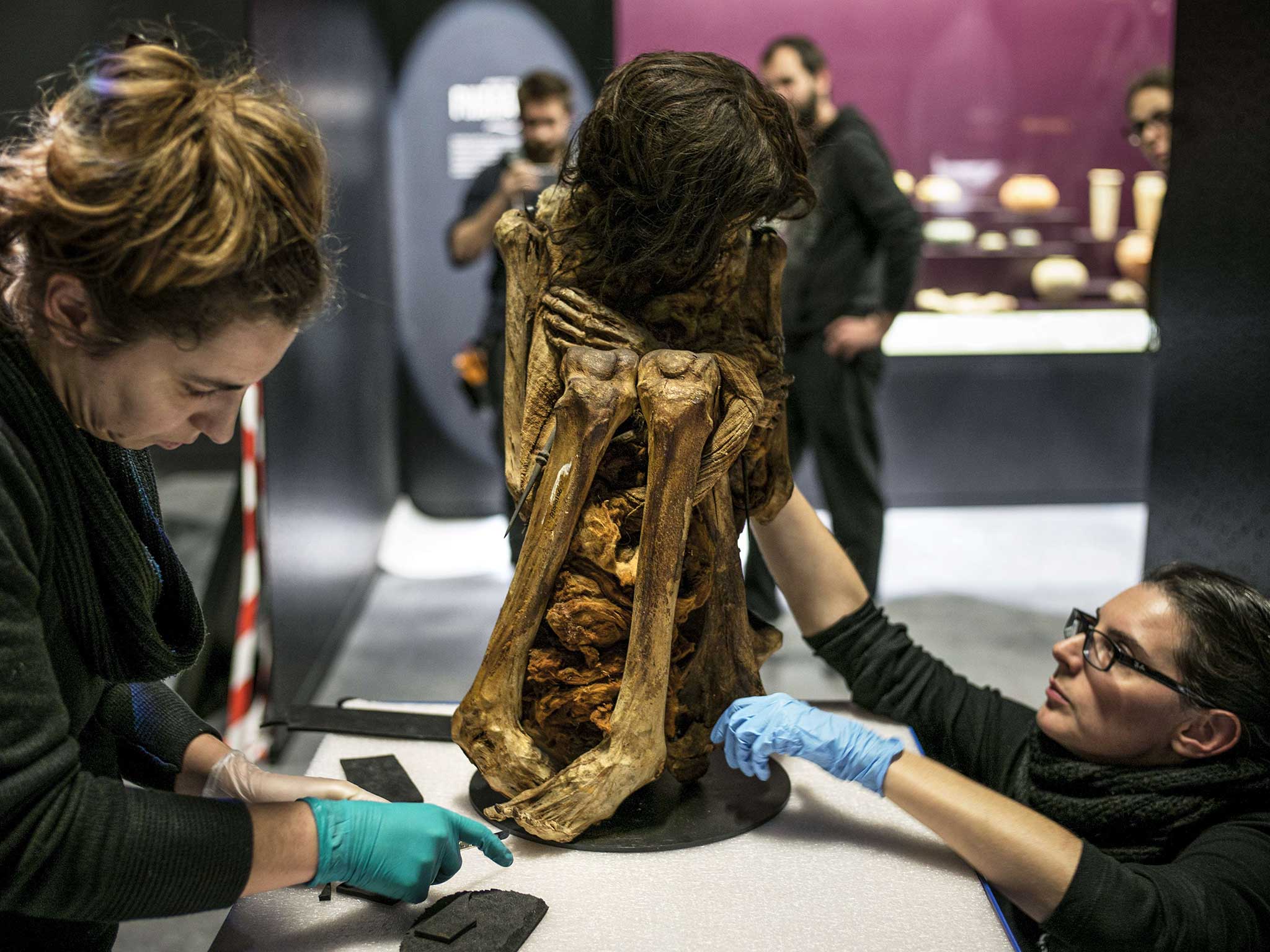Ancient mummy prepared for public exhibition after excavation in 2012
Ichma mummy was among discovery made two years ago outside Lima in Peru, but is being displayed in Lyons

French archaeologists are carefully preparing a 1,000-year-old Peruvian mummy ahead of a new exhibition.
The mummy, a women believed to have been around 50 years old when she was ceremonially buried in the ancient settle of Pachacamac, near Lima, is due to go on display to the public at the Musee de Confluences in Lyons later this month.
She will form part of an exhibition examining human representations of death in different ages and cultures from around the world.
Archaeologists have been careful to preserve the frail – if well-preserved – mummy, keeping her in the same foetal position as when she was first discovered in 2012.
More than 80 mummies and skeletons were found in Pachacamac, around 25 miles from the Peruvian capital, including infants and children who are believed to have been ritually slaughtered, in a 1,000 year-old tomb.
Beyond these amazing finds, a further 70 bodies – similar to the Peruvian mummy about to go on display – were found scattered around the ritualised bodies in the tomb. Most were in a foetal position and wrapped up – helping to explain their extraordinary preservation.
The 600 hectare site, which was discovered by the Université libre de Bruxelles, is considered among the most important ancient settlement finds – on par with the Machu Picchu and Nazca Lines.
The Ichma inhabitants are believed to have lived there between 800AD and 1450AD building 17 pyramids and worshiping the god Pacha Kamaq.
Their systems of belief were later incorporated in the Inca empire, when the small society was conquered by the dominant force as it expanded across much of South America.
Join our commenting forum
Join thought-provoking conversations, follow other Independent readers and see their replies
Comments
Bookmark popover
Removed from bookmarks